The School's timeline
Our school teaches material that currently cannot be found anywhere else on earth. It integrates subcellular biology with psychology in ways that simply could not have been imagined before, solving issues of immunology, disease and health that were not even understood up to this time. But this material was the results of three decades of research work. We thought you might be interested in seeing a timeline of key research discoveries and other milestones along the way, and how our school evolved in response.
We had several motivations for starting a school teaching trauma psychobiology therapy. We wanted to teach our evolving trauma-therapy techniques to therapists (and interested laypeople) so they could improve their client effectiveness; so we could beta test our developing psychobiology models with interested volunteers; and in the long term, improve the entire field of psychotherapy. And finally, potential new researchers needed this background training so they could contribute to new research projects.
1985: In the late 1980s, Dr. Grant McFetridge started to work part-time on the question of why some people have exceptional mental and physical health - hopefully to find a way to make this possible for all people. His professional background was not in medicine or psychology - rather, he was a consultant and university adjunct faculty in electrical engineering. To give himself a solid background in the new (to him) field of psychology, in the 1990s Grant started a doctoral program at the California Institute for Integral Studies in San Francisco.
- "Courses started in 1995 when we first taught our recently developed regression therapy WHH, a key tool for prenatal research."

1998: By the late 1990s, Dr. McFetridge had attracted other colleagues into this effort (Mary Pellicer MD, Adam Waisel MD, Marie Green PhD, Deola Perry PhD, Wes Gietz, and others) and founded the Institute to act as a focus for this research work. They started to present the regression technique at conferences and to teach it in workshop settings. These early training classes served two purposes - it gave a trauma-healing tool to therapists, and it inspired other professionals to get involved with the research efforts.
1999: Our first ww.PeakStates.com website goes live. Many colleagues had been waiting eagerly for this step.
2001: Dr. McFetridge moves from California to Hornby Island BC Canada. His very remote new island home had early ADSL, making this possible. During the next decade he gave workshops and trainings by flying from nearby Comox BC to venues in North America, then soon Australia and Europe too. On the island he was very fortunate to meet and form friendships with his soon to be research colleagues Paula Courteau and John Heinegg who both also lived there. Over the next two decades, Paula would edit four of his books (and write one of her own on WHH), and John would compose the music used for new prenatal trauma treatments.
2002: In 2002 the Institute made a completely unexpected, fundamental breakthrough - the discovery of the primary cell, and hence the resulting field of subcellular psychobiology. Because of the quickly apparent safety issues with this new discovery, this information was kept restricted to the research staff for many years while they grappled with trying to understand the problems that were being encountered.
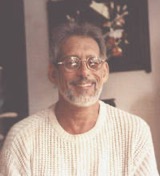
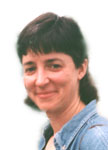
Core researchers Adam Waisel MD (Israel) and Mary Pellicer MD (USA), 2002."In 2004, in our trauma course we added our work on the relationship between peak states of consciousness and prenatal trauma. Over the next decade we continued to improve trauma therapy effectiveness and scope by incorporating a series of new psychobiology research discoveries."

Dr. Pellicer and Dr. McFetridge gave their first training focused on this topic of peak states of consciousness that same year at the Trillium retreat center in Oregon. It was a 4 day residential retreat training (with meals and swimming pond included.)
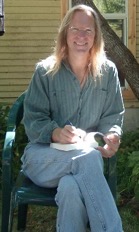
Our very first peak states training at the Trillium retreat center in Oregon USA in 2004.
2005: In the second half of the decade, the volunteers at the Institute began to teach more and more professional courses in North America as well as in Europe and Australia. Although these courses were designed for therapists who were treating clients, the research staff used these trainings to help them test their understanding of subcellular and developmental psychobiology and its applications. Hence, they put extreme safety protocols in place, and therapists signed agreements to not use or share material the Institute staff felt was still too untested for clients.
2006: The Institute also started a certification program. Nemi Nath, the past president of the World Breathwork Federation, joined the Institute and worked on this project. Unlike most certification programs, it was designed to help these unusual therapists stay updated in the rapidly changing discoveries and techniques. And because this whole field was so new and experimental, it also allowed the Institute's newly formed worldwide clinics to act as a backup support structure for those therapists using these new approaches to healing.
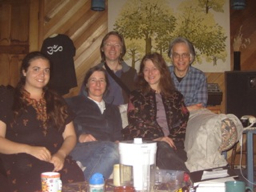
A week-long meeting of researchers on Hornby Island, BC Canada in 2006

Edward Rodziewicz (Poland) organizes the first Polish trainings in 2006.
2007: Dr. McFetridge had always emphasized 'charging for results' in the Institute's courses, but in 2007 the Institute made it mandatory for therapists who wanted to be certified with the Institute. Ethically, it was important that these new, somewhat unreliable techniques would not waste client's money; but it also solved the problem of therapist quality control, and gave immediate feedback to the research team when a new process or technique was not working properly. The Institute's website now listed these pioneering therapists who embraced this new way to charge and treat clients.

2010: By 2010 the Institute had made strides in developing and applying developmental psychobiology to psycho-immunology, in order to directly eliminate diseases that were causing mental and physical disorders. The first application of this was a technique that eliminated the fungus that caused schizophrenic voices.
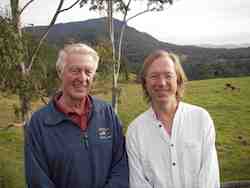
Frank Downey CEO and Dr. Grant McFetridge Director, at the Australian school in May 2010
2011: More importantly from a safety perspective, in 2011 they finally solved the cause of serious pain symptoms in some clients triggered by their attempts to heal (when using any trauma therapy, not just techniques from the Institute). With this breakthrough, the school resumed teaching courses after a three-year hiatus.
2012: A new, simple technique for eliminating body associations was developed, after several years of working on this problem..

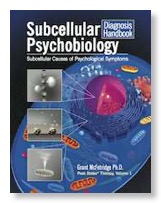
2015: On the research side, the team started focusing their efforts on specific, serious diseases that have no current treatments in standard medical practice.
2016: Frank Downey, our long time CEO retired, and Shayne McKenzie stepped forward to become CEO of the Institute.
The school information was moved from the PeakStates.com site and to its own website (www.subcellularpsychobiology.com) this year.
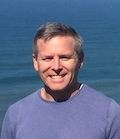
In 2016 Shayne McKenzie (Australia) becomes CEO of the Institute
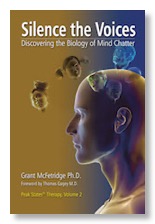
Up until now, we had one month-long residential training format. This year, Shayne broke the training into two parts, a 2-week therapy part and a 2-week peak states part. This made it easier for students to find the time for, and allowed therapists who just wanted some tools to focus on only that part.
Dr. Kirsten Lykkegaard joins the research team at the Institute. She is a veterinarian with a PhD in pharmacology, and a principal scientist at the drug company Novo Nordisk in Denmark.
2018: We make a major breakthrough in understanding the biology behind psycho-immunology.
2019: This year we started an effort to move our treatment for traumatic brain injury (TBI) into the mainstream. In March, Dr. Pellicer and Dr. Lykkegaard presented at the 13th World Conference in Brain Injury in Toronto, Canada.
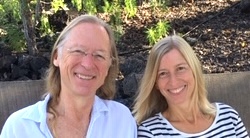
Dr. Grant McFetridge and Dr. Kirsten Lykkegaard in Hawaii in 2019. Dr. Lykkegaard has become the co-director of research at the Institute.
2020: Because of the coronavirus, we shifted our research priorities to work on viral psycho-immunity. In April, we had our first research symposium on psycho-immunology and psychobiology on Hornby Island, and presented our interim findings there.
Due to the pandemic, we shifted to online training courses. Our courses have been mostly taught online since then.
2021: In May, we finally understood a major problem to creating a psycho-immunology (PI) technique, something we called PI resistance. However, our techniques were pretty rough and far from being ready for clients. We start testing PI treatments with certified therapist volunteers.
2022: Shayne McKenzie teaches the first Foundation trauma techniques class this year. His intent was to make these extremely effective tools available to interested people in a short time (15 hours), without having to commit to the much more extensive but much longer trauma therapy training. This course becomes the first module of the full trauma therapy training.
2023: In January we developed a 'first-generation' psycho-immunology technique. Sadly, our emeritus CEO Frank Downey passes peacefully in his sleep at age 88.
This year Shayne introduced the foundational training course, geared to giving students a very short introduction to trauma psychobiology.
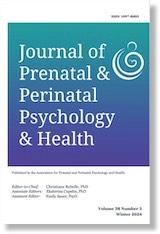
Our first peer-reviewed paper on the primary cell is published in Dec (doi.org/10.62858/apph241204)
Dr. Kirsten Lykkegaard is now the Research Director at the Institute; Dr. McFetridge has partly retired but is still active in research and writing.
2025: In January, Dr. Lykkegaard makes a breakthrough with '2nd generation applied psychobiology'. This year we slowly update our current 1st generation psychobiology treatments, and do phase 1 clinical trials testing on these new processes.
Our second peer-review paper on subcelluar psychobiology is published in April (doi.org/10.62858/apph250404).
- "In the last year we've entered another period of rapid breakthroughs in psychobiology research and treatment, so we expect that in the next year or two new material will start to move into our existing therapist training courses."
…or visit our Forum
